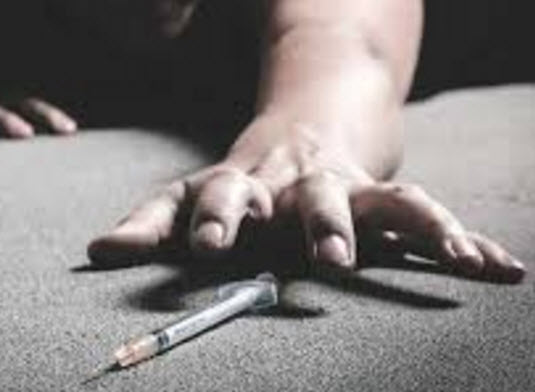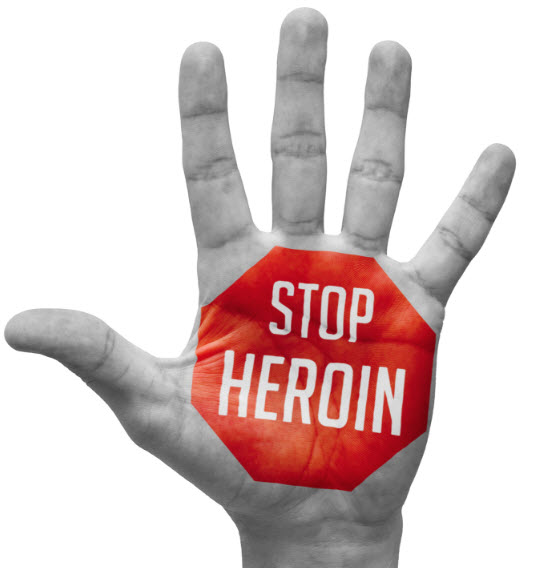Learn The Best Way To Detox From Heroin
A detox is a natural process that involves the body ridding itself of foreign or toxic substances. If the toxic substance is a result of illegal drug use, during the detox the body will experience a wide range of uncomfortable symptoms. Many people who attempt to do a heroin detox on their own will find the process extremely difficult, uncomfortable and painful.
Detoxing from Heroin Withdrawal Symptoms

There are a number of withdrawal symptoms that are associated with opioid withdrawal syndrome, which often occurs when a person ceases using heroin. These symptoms take place six to twelve hours after the last dose. Without the aid of certain medications, the symptoms tend to peak three or four days after the last dose. Usually, the more severe cases of abuse will lead to a more difficult withdrawal process.
Common withdrawal symptoms to expect during heroin withdrawal include anxiety, cravings, depression, runny nose, sweating, watery eyes, restlessness, stomach cramps, chills and fever, diarrhea, increased blood pressure and heart rate, muscle tremors, muscle spasms and joint pain, and vomiting and nausea.
While many of the symptoms are considered incredibly uncomfortable, they are not typically life threatening.
Reaching your Recovery Goals after Detoxing

A detox is considered the first stage of recovery. This stage works to prepare both the mind and body to more fully engage in order to succeed in the recovery process.
In many cases, after a detox, an addiction recovery program will continue with treatment efforts in the form of individual and group therapy. These approaches will address the need of support and can help to place the patient on the right track for long-term success.
When a person attempts to kick heroin on their own, the main problem they face is the drug cravings. Cravings combined with a painful withdrawal can become too much for some people to handle. During this period a person is the most likely to relapse in order to alleviate their discomfort.
Fortunately, you don’t have to go through detox alone. With the help of trained medical professionals, medications and treatments are often administered that work to alleviate many of the intense symptoms. While patients can still experience some symptoms associated with withdrawal, many of the symptoms are greatly reduced with the help of round the clock monitoring, medication and compassionate care.
Heroin Addiction Treatment Options

As a person begins to research the detox process they’ll discover that there are several options to choose from including inpatient and outpatient programs.
Inpatient treatment often takes place in a residential treatment facility or hospital. Other detox options include rapid detox, outpatient detox and anesthesia assisted detox.
Unlike an outpatient program, inpatient programs provide treatment round the clock, offering access to care from trained staff and essential medical services if they’re needed. Inpatient treatment is very beneficial to anyone who is struggling with addiction and it’s one of the treatment options that features the highest success rate. Inpatient treatment may be a good option if you have a history of relapsing, have a history of long-term heroin use or if you have mental health or medical conditions that require special attention. Some of these programs take place in hospitals where medical staff are present to help patients through the uncomfortable phases of the detox. Other inpatient programs take place in a residential setting where healthcare professionals can visit intermittently in order to monitor a patient’s withdrawal progress.
Another variation in inpatient program options is the kind of services and amenities that are available during treatment. Facilities that offer high end resources and amenities also come with a higher cost.
Outpatient programs allow a person to undergo treatment while remaining at home. This program is similar to an inpatient program, and medications will be administered to help patients to manage withdrawal symptoms. When a person chooses an outpatient program they will need to check in with their physician frequently in order to have their progress monitored. The outpatient option isn’t the best choice for everyone. A person will have a better chance of success in an outpatient program if they are a new heroin user, have only used heroin in small doses, don’t have a relapse history, and do not suffer from mental or pre-existing health conditions.
The rapid detox is designed to help patients to quickly get through the detox phase and into the recovery phase. This option typically uses opioid antagonist meds that work to block the effects of heroin in the body. While this faster method may seem appealing, there are some serious risks to consider including irregular heartbeat, pulmonary edema, and rapid onset of withdrawal symptoms.
A detox that’s anesthesia assisted is another type of rapid detox and one that takes place with the patient under anesthesia. While this method allows the body to detox the heroin in as little as four to eight hours it’s also considered very risky, especially if the patient is a long time user or has certain medical conditions.
Can I Detox from Heroin at Home Alone?
As we have mentioned, one of the biggest problems with detoxing at home on your own is the intense cravings you’ll have during the process. You must also be in otherwise decent physical health to detox, otherwise you’ll put yourself at an increased risk of heart attack or seizures. Doing it alone is possible, but we recommend consulting a physician prior to attempting to do so. Your physician can prescribe medications that can combat the muscle cramps, diarrhea, nausea and anxiety, to help make the process easier. They will also want you to come in every two or three days in order to monitor your condition. This is an alternative many people who do not have private health insurance will choose. Unfortunately, without ongoing therapy and treatment fifty-six percent of people who have kicked heroin on their own will experience a relapse in the first six months of recovery. Most rehab experts recommend individual therapy sessions twice weekly and group therapy one to two times weekly.
